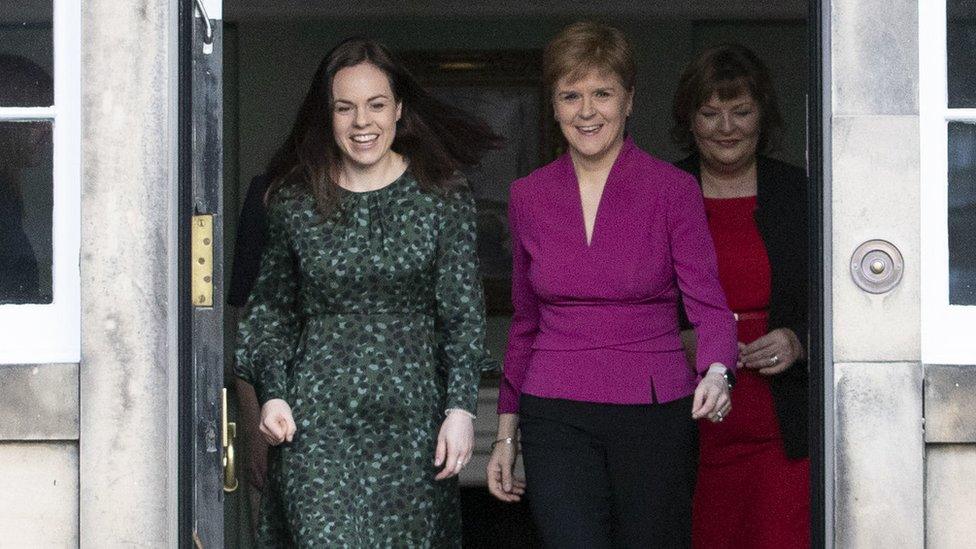Kate Forbes: My postnatal depression led to extreme terror
- Published
Kate Forbes has spoken about her postnatal depression.
Kate Forbes, the former SNP leadership candidate, has spoken of the "extreme terror" she experienced while suffering postnatal depression.
The 33-year-old MSP for Skye, Lochaber and Badenoch was diagnosed with the illness after the birth of her daughter, Naomi, in August 2022.
She told the Press and Journal, external that the first weeks with a newborn were the most difficult of her life.
It came after an 18-hour labour which ended with a delivery by forceps.
Ms Forbes later told BBC Radio Scotland's Lunchtime Live that the delivery was traumatic but "I've still to hear of a non-traumatic labour experience for any woman".
"When I came home I guess I expected to be full of maternal joy and happiness and instead found myself suffering from total insomnia," she added.
"For about a week after the birth, I'm not sure I slept at all.
"And I experienced quite extreme terror during the day and also at night, feeling like something was going to happen to the baby, feeling like somebody was going to cause harm to her, and being wracked with guilt and anxiety.
"I hadn't had that much experience of mental health issues throughout my life so this sense of intense sadness, feeling extremely vulnerable and being wracked by terror was completely new."
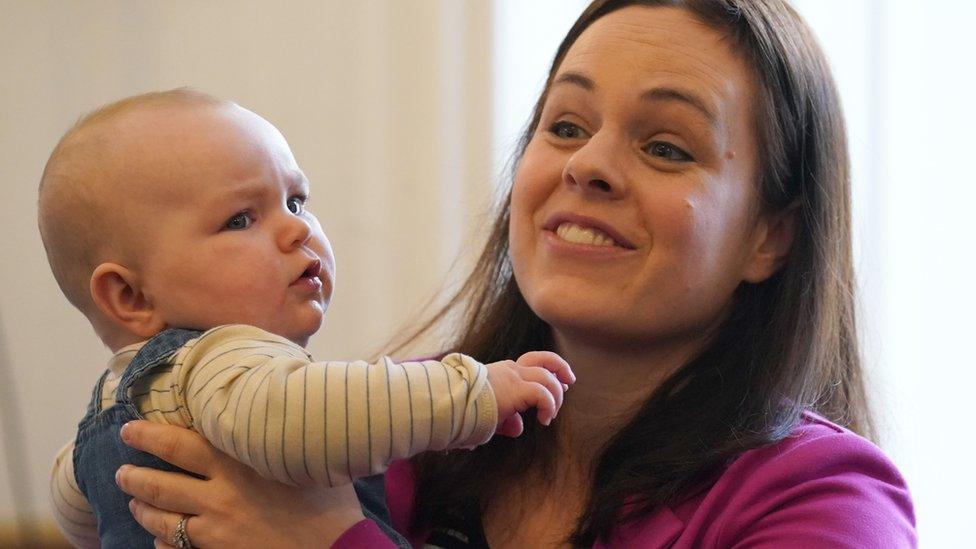
Kate Forbes and her daughter Naomi, who is now one.
The former finance secretary said that she told a midwife about her emotions after a week and the NHS "kicked into action to ensure I was surrounded by care".
But she said: "There's very little you can do to support a woman in that position because of course there's very few drugs that you can provide because they're breastfeeding, you can't provide help for sleep because you need a new mother to be awake and alert for their baby".
Information about drugs that can be taken while breastfeeding is available from the Breastfeeding Network, external.
Ms Forbes said her recovery began by accepting that she had postnatal depression after being told by medics.
She was able to talk things through with family including her "very supportive" husband, Ali MacLennan, and she also had counselling.
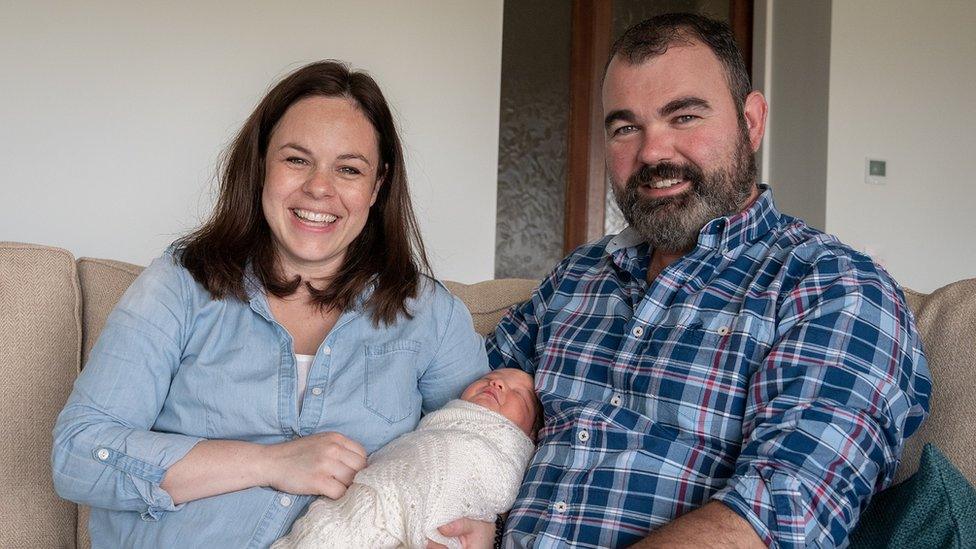
Kate Forbes with her husband Ali and daughter Naomi shortly after the birth
The first time mother said she wanted to share her experience to reduce stigma and call for more resources for midwives across the country.
"At the time I was very keen to speak out because my experiences were so profound and I was so taken aback by how little discussion there is publicly on the experiences that new mothers go through," she said.
"My midwives were legends amongst women - exceptional care - but I realise many of them were providing care based on their own experiences and perhaps could have done with access to more resources. And I'm really keen that there is that consistent level of care across Scotland."
She added: "And also we need to see more of a general investment in research and development in understanding the issues that new mothers face. It surprised me that women have been giving birth since time began that here we are in 2023 and women are still battling with some of these issues that can degenerate so quickly.

What is postnatal depression?
It is a type of depression which affects one in 10 women within a year of giving birth, according to the NHS.
Many women experience the "baby blues" after having a baby - feeling down, tearful or anxious - but this should not last more than two weeks.
Symptoms include a persistent feeling of sadness or low mood, problems sleeping at night, difficult bonding with their baby, and withdrawing from other people.
Midwives and GPs can help people who may be suffering with the illness. Treatment includes antidepressants, psychological therapy and self-help advice.
For more advice on postnatal depression go to NHS Inform, external.

Ms Forbes succeeded Derek Mackay as finance secretary in Nicola Sturgeon's government in 2020 after he resigned over social media messages to a 16-year-old boy.
She cut short her maternity leave to join the leadership race when Ms Sturgeon stood down as first minister and SNP leader.
Narrowly defeated by Humza Yousaf, she turned down a move to the rural affairs brief and remains on the backbenches.
Related topics
- Published28 March 2023
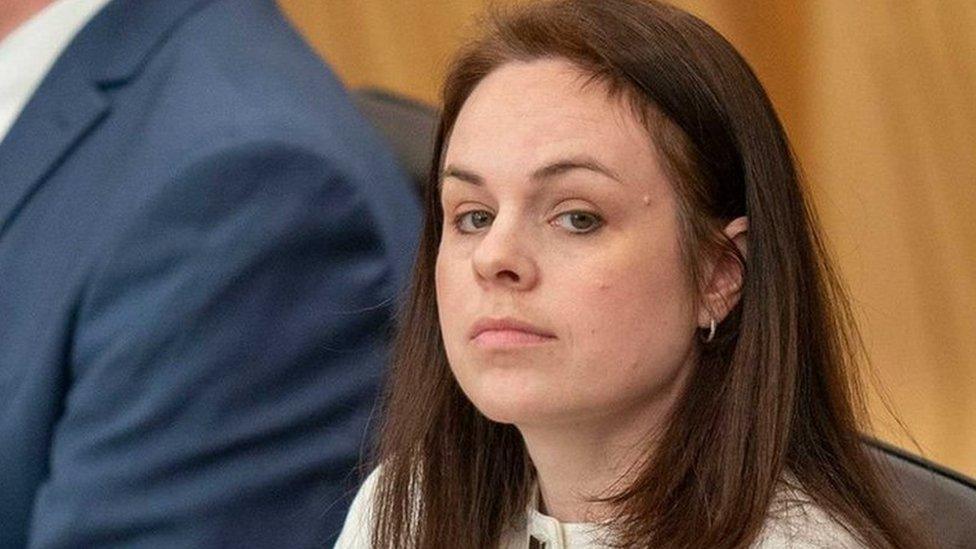
- Published23 February 2023
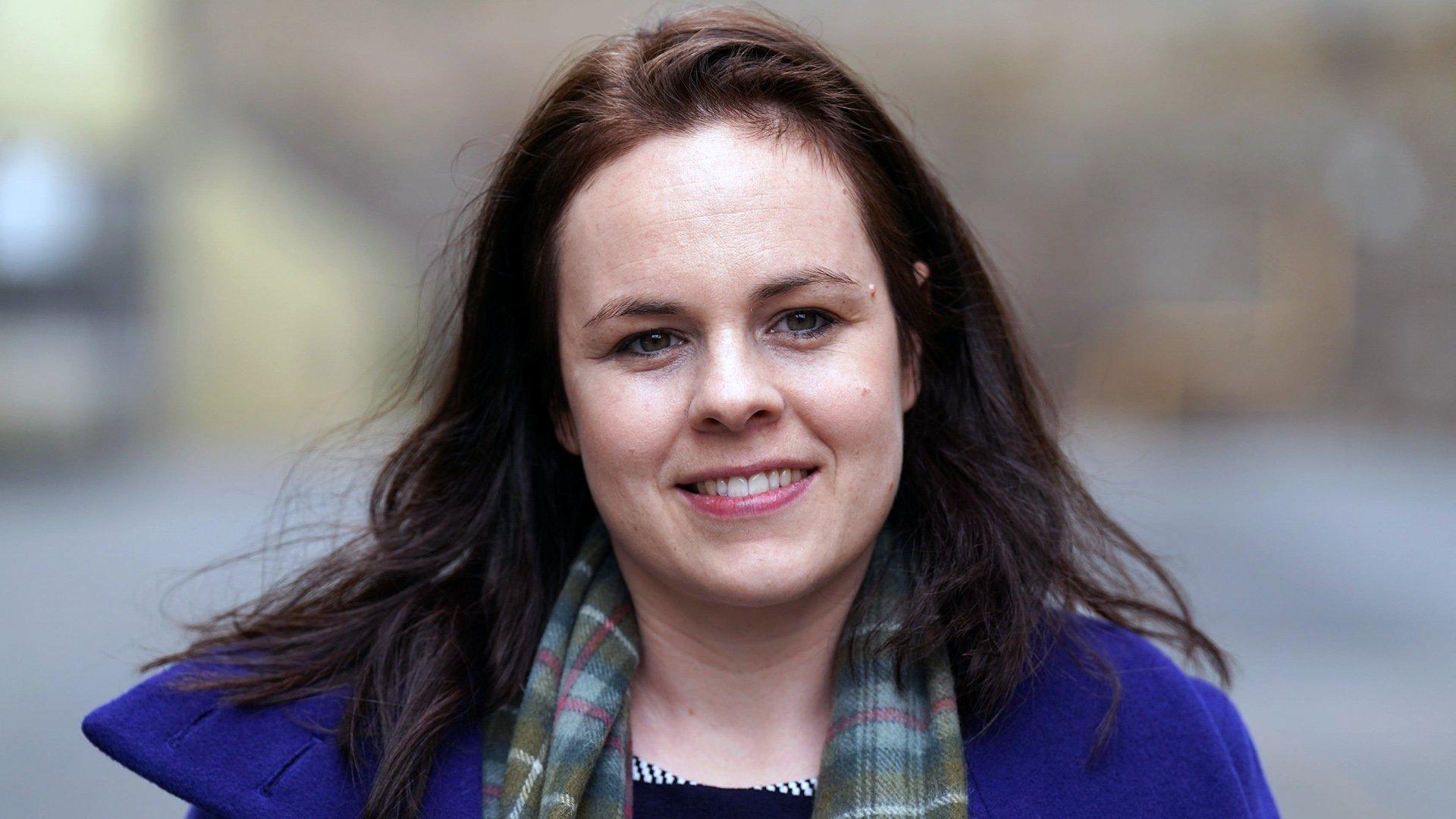
- Published20 February 2023
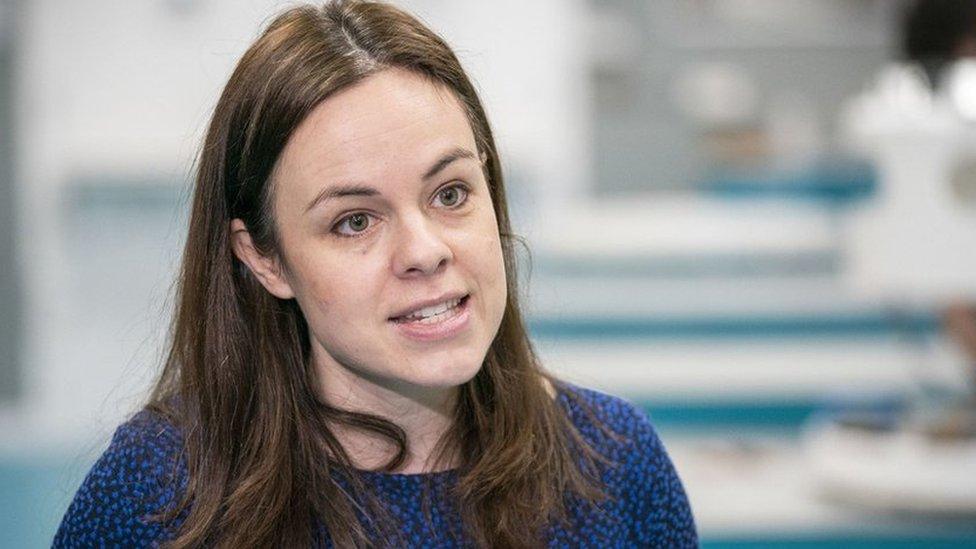
- Published17 February 2020
